“I . . . I barely knew him.”
Then she caught his eyes in the small sockets of the face-plate. They were piercing gray, and seemed to float before his hidden face, rather than reside within it.
“Don’t torture yourself,” he whispered. “This isn’t your pain to bear.”
The words reached right through her, and her reeling mind came clear. It was as if he had reached into her soul, removed the shrapnel and sutured up the wound left by the day’s nightmare. And then, in a quiet twinkling of revelation, it occurred to her who he was—who he had to be! It was there in his eyes, and in the flush of presence that steeped the room. It was the same atmospheric charge described by those who had stood on the rim of Black Canyon, and watched as Dillon Cole stood on the canyon floor, and shattered the great dam with the mere force of his will. More than four hundred perished in the canyon before the Backwash began, carrying their bodies back up into Lake Mead—But his body was never recovered. Now Maddy knew the reason why. And the reason for this fortress within a fortress.
“Is there anything I can do for you?” she asked.
Silence for a moment, and then a gentle response. “You could scratch my nose.”
And so she reached in through the small breathing hole, and did.
* * *
Once Haas was escorted out and the vault sealed, General Benjamin Bussard cleared the area of all other personnel. Then, standing alone in Corridor A, he fired a full clip of hollow-tipped bullets into Gerritson’s face until he had no eyes to see, nor mouth to speak; until his body held neither memory nor a glimmer of life. And when he was done, Bussard stood there watching and waiting, to make sure his death took.
Transcription excerpt, day 197. 19:25 hours
“I’ve been thinking about the way we fit together. The Shards, I mean.”
“I thought you hated each other.”
“Sometimes we do, sometimes we don’t. It’s a complex relationship. There were things we learned at Hearst Castle, when we were doing all that healing. I could set broken bones, and break down tumors, but when there was someone suffering from a virus—nothing. And then Tory—she was better than antibiotics when it came to bacterial infections, but again, no luck on viruses. But when we were in a room together. When we touched someone at the same time, the virus washed clean.”
“And you think that means something?”
“I don’t know. When you mix the colors of the spectrum, you get pure white, right?”
“Or mud—it depends on whether you’re mixing light, or pigment.”
“So which are we?”
* * *
Two time zones away, Winston Pell dozed during an in-flight movie, into a dream that was no different at thirty-five thousand feet as it had been at sea level. He was sitting in a lavender lounge chair, floating in the air at a dizzying height, and gagging on the sickly sweet smell of some floral perfume. There was a building before him, and standing on the ledge were three figures. A man, woman, and child. They watched impassively as Winston’s floating chair lost buoyancy and he plunged to the earth below.
Winston awoke with a start, and got his bearings. The flight attendants were collecting trash, and final credits were rolling on the inflight movie. He blinked, trying to clear his eyes—the three figures in his dream had left an afterimage on his fovea. The dim spots in the center of his vision took a few moments to fade along with the residual sensation the dream left behind; the sensation that he needed to do something. The dream always brought with it a piercing call to action, but with no direction. He had no idea what he had to do, only that there was a burning need to do it. So he had hopped on a plane to pay his respects to Michael Lipranski’s father—because if he had to do something, it was as good a thing as any.
Now he peered from his window to see nothing looming outside but unimpressive variations of normal as he descended into Orange County toward John Wayne Airport. The weather pattern in Southern California was back in control. Or out of control, depending on your point of view. There would be no hoarfrost at dawn on the sands of Newport Beach. No inexplicable downpours, or bubbles of sunshine defying the grim blanket of the marine layer. Outside Winston’s plane, the clouds blew untethered, with no memory of Michael Lipranski, the boy who, for a time, had controlled them. His death had set the skies free.
Winston glanced at his watch, and adjusted it three hours back, to noon. Then he reached over and checked his carry-on—a black leather backpack that rested in the seat beside him.
“I’m sorry, but you’ll have to put that back under the seat for landing,” the flight attendant intoned in a practiced voice. It almost sounded recorded, like the White-Zone Nazi, whose voice resounded in every airport in the world.
“I know the drill,” Winston said. He shifted it gently to the ground, as if to slide it under the seat, but when she was gone, he hoisted it back up. He needed the legroom, FAA regulations be damned. The nervous traveler across the aisle threw him an anemic miffed look, as if this baggage infraction could trigger a mid-air collision.
Winston returned his gaze. “You need a shave,” Winston told him.
The man looked away, and mumbled under his breath. “I shaved this morning.”
“Still need one.”
Confused, the man absently passed his hand over his cheek and found stubble that could have been a week old.
Winston grinned. It was a guilty pleasure harassing the people within his sphere of influence. One of the few pleasures he allowed himself lately. Hair growth, nail growth—anything that could grow or regenerate did so when caught within Winston’s field. Such was his unique talent; different, yet somehow connected to the various abilities and effects of the other shards. No doubt there would be several people on today’s flight who would be making unexpected trips to Supercuts this afternoon.
After a bumpy descent, the plane pulled in five minutes late. “Santa Ana condition,” the pilot had said; the periodic off-shore flow that brought hot, dry winds from the desert, and forced planes to land from the west.
Once in the terminal, Winston suffered the ordeal of a 17-year-old black kid under an assumed name renting a car in a lily-white airport, trying to look as old as his fake ID claimed he was. Thaddeus Stone, 21, a combination of his brother’s name, and his nickname. The clerk handed him the keys, then Winston waited for his luggage to come shuttling down the baggage claim carousel.
As he waited he caught sight of a security guard trying unsuccessfully to roust a clutch of Colists that had camped out like squatters.
“Incredible,” grumbled one of the passengers. “It’s the sixties all over again.” Which was true to an extent—and yet in some ways this was markedly different. Back then it had been a generation that chose to tune in, turn on and drop out in full view of a gawking silent majority. But this time, there were no generational boundaries. Nor were there racial or socioeconomic boundaries to the phenomenon. People of all walks of life had surrendered themselves to something too large to be called a cult, and too disorganized to be called a religion. It could only be called a movement. In this case it was a movement that rivaled the motion of the tides in its scope and pervasiveness.
This particular group was a melting pot of strange bedfellows. At least four generations were represented, white, black, hispanic, and Asian. There were at least thirty people engaged either in prayer or in accosting travelers as they passed. More security guards were called in. Although Winston usually avoided the many gatherings of self-proclaimed Colists, this time he ventured closer, drawn by the sight of a black man in a wrinkled Armani suit and bare feet. The man had clearly been a professional before walking this strange path. He reminded Winston of his own father, who had died much too young.
Читать дальше
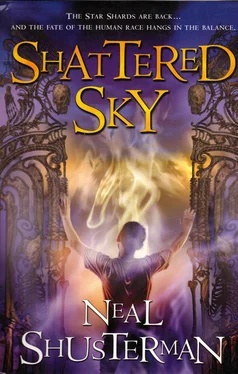
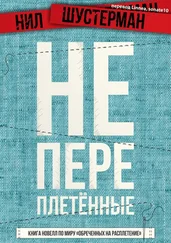
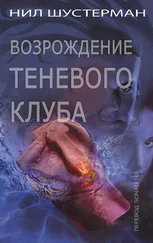
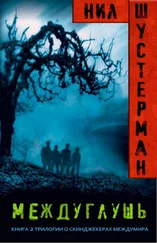
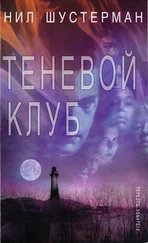
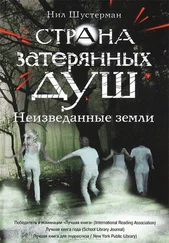
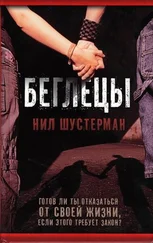
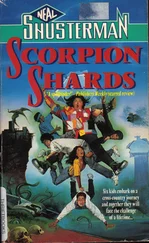
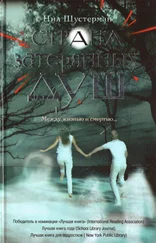

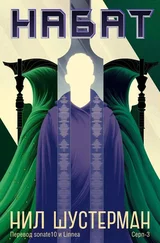
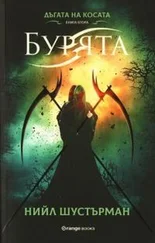
![Нил Шустерман - Жнец [litres]](/books/418707/nil-shusterman-zhnec-litres-thumb.webp)